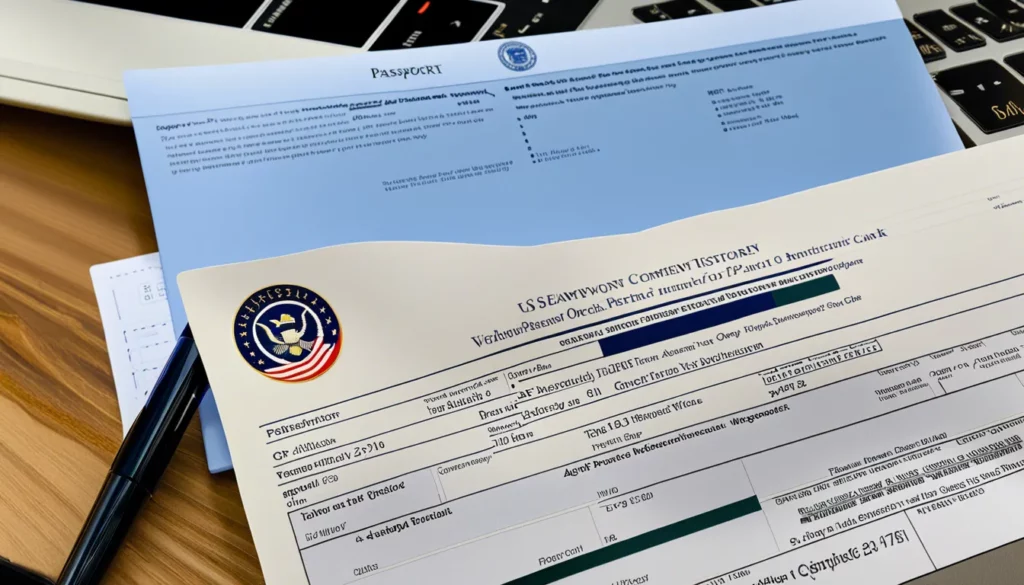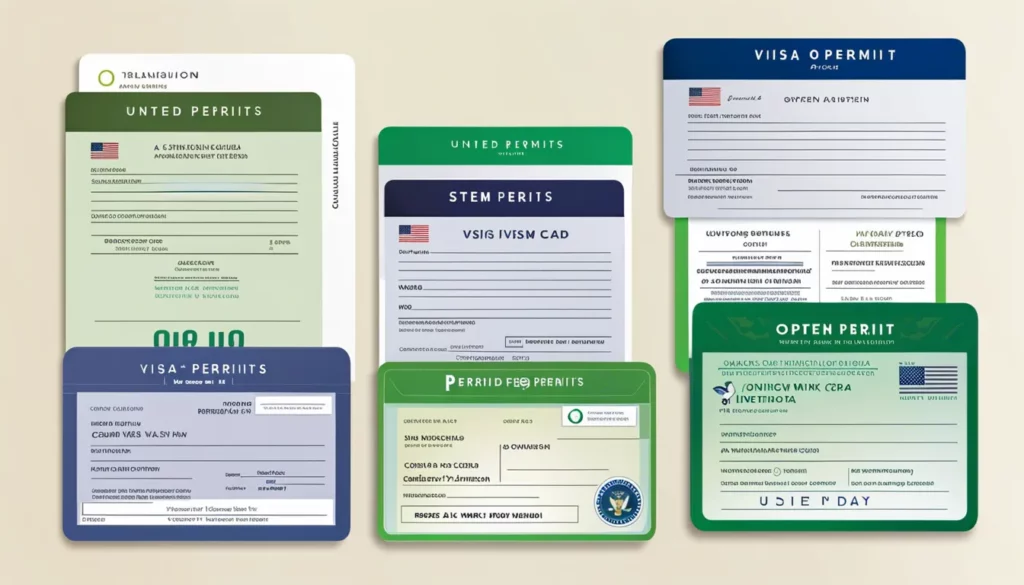For many people in search of new job opportunities and a better future, the United States is a desired destination. Moreover, known for its cultural and economic diversity, it attracts people from all over the world seeking to work in the country.
However, the question “what happens if I work illegally in the USA?” always arises among immigrants. Working without proper authorization carries both personal and legal consequences and may limit certain future opportunities. Jaskot Law tells you all the details about this issue. Keep on reading!
What does it mean to work illegally in the United States?
Working illegally in the United States refers to any work activity performed by a person who does not have the necessary authorization to work in the United States. This includes jobs that require work permits, such as temporary work visas or green cards.
What happens if I work illegally in the United States?
Working illegally in the United States can have a number of negative repercussions on both the individual’s personal life and legal status. Some of the main consequences are detailed below:
Personal consequences
- Labor exploitation: Undocumented workers are often more vulnerable to labor exploitation, including low wages, long working hours and dangerous working conditions, as they are often afraid to report abuses for fear of being deported.
- Limited access to services and benefits: Illegal workers may find it difficult to access health care, education, and other benefits available to citizens and legal residents.
- Social isolation: The constant threat of being discovered and deported can lead to social and emotional isolation, as illegal workers may avoid common activities for fear of detection.

Legal consequences
- Deportation: The most serious consequence is deportation. If immigration authorities catch an illegal worker, they could deport him to his country of origin, which would mean separating him from his family and life in the United States.
- Future inadmissibility: Working illegally may result in future inadmissibility, meaning that the person will not be able to return to the United States legally for a specified period of time.
- Employer sanctions: Employers who hire undocumented workers may also face legal sanctions, fines and the loss of their business license.
What happens if I work illegally in the USA in connection with immigration programs?
Working illegally in the United States can have a number of implications for various immigration programs and visa applications. Some of these implications include the following:
| VAWA (Violence Against Women Act) | VAWA allows certain family members of U.S. citizens and lawful permanent residents who suffered domestic abuse to apply for an independent visa, without relying on the abusive spouse. Working illegally does not directly affect VAWA eligibility, but it is important to be aware of the specific requirements of this program. |
| DACA (Deferred Action for Childhood Arrivals) | DACA provides temporary relief from deportation and work authorization for individuals who came to the United States as children. Working illegally prior to obtaining DACA may impact eligibility, as proof of continuous residency and good moral character is required. |
| TPS (Temporary Protected Status) | The TPS is a program that provides temporary protection for people from designated countries due to dangerous conditions. Working illegally prior to obtaining TPS may not affect eligibility, but it is important to follow eligibility updates and comply with specific program requirements. |
| Work visas and adjustment of status | If a person worked illegally in the United States and then seeks to obtain a work visa or adjust status to permanent resident, this could impact his or her eligibility. The immigration authorities such as USCIS may take illegal work history into account when evaluating the application, although it may not necessarily result in automatic denial. |
| Family immigrant visas | Working illegally may affect an individual’s ability to sponsor close family members, such as spouses or children, for an immigrant visa. Immigration authorities may consider the illegal work history when assessing the sponsor’s financial capacity. |
It is important to note that the implications may vary depending on the specific immigration program or visa. Jaskot Law understands that working illegally in the past will not necessarily result in the automatic denial of an application, but that it can be a deciding factor. Get the advice you need to secure your future!
What remedies are available to prevent illegal labor in the United States?
Working legally in the United States is crucial to avoid legal problems and enjoy the benefits offered by the system. Therefore, it is important to know what resources and strategies exist to work legally in the country:
| Work visas: There are several categories of work visas, and each is designed to cover different employment situations. Some of the most common include: – H-1B Visa: For highly skilled professionals. – L-1 Visa: For employees of multinational companies transferring to a U.S. subsidiary. – O-1 Visa: For persons with extraordinary ability in fields such as the arts, sciences or sports. |
| 2. Exchange Programs: Some cultural exchange programs, such as the Temporary Worker Program (J-1), allow participants to work temporarily in the United States while immersing themselves in a cultural and educational experience. |
| 3. Study and training: Obtaining an education in the United States is an excellent way to legalize status and, at the same time, acquire skills and knowledge that will increase the chances of obtaining a work visa in the future. International students may work on campus and, in some cases, off campus under certain conditions. |
| 4. Family Visas: Family members of U.S. citizens or lawful permanent residents may be eligible to obtain an immigrant visa or a nonimmigrant visa through a family petition process. |
| 5. Temporary Agricultural Worker Programs: The Temporary Agricultural Worker Program (H-2A) allows U.S. employers to hire foreign workers for temporary agricultural jobs. |
| 7. Participation in visa lotteries: Some countries are eligible to participate in the Diversity Visa Lottery, which grants the opportunity to obtain an immigrant visa. |
| 8. Active job search: Actively seeking employers willing to sponsor work visas can be an effective strategy. Some sectors, such as technology and healthcare, have a high demand for skilled foreign workers. |
| 9. Starting a business: If you intend to start a business in the U. S. and can invest a significant amount of capital, you may be eligible for an investor visa, such as the E-2 Visa. |
| 10. Participation in investment-based immigration programs: Some states offer investment-based immigration programs, such as the EB-5 Immigrant Investor Program, which grants immigrant visas to those who invest in projects that create jobs in the United States. |

Can I obtain a Work Permit to avoid working illegally in the United States? What does this resource involve?
Yes, it is possible, since the Employment Authorization Document (EAD) is one of the main ways to work legally in the United States by authorizing foreigners to work in the country for a specific period of time. Therefore, it is important to know the process for applying for an EAD.
Application process for an Employment Authorization Document (EAD)
Step 1 – Determine eligibility: Identify whether you meet the requirements to obtain an EAD, which generally include having an immigrant or non-immigrant visa that allows it.
Step 2 – Complete the Form I-765: This is the application form for an EAD. You must complete it accurately and send it along with the required documents, such as proof of eligibility and photographs.
Step 3 – Pay the fee: You must pay the appropriate application fee, unless you are exempt from paying it.
Step 4 – Submit the application: Send the application and documents to the address indicated on the Form I-765.
Step 5 – Wait for approval: Once USCIS receives the application, they will process and review it thoroughly. If approved, you will be awarded the EAD.
If you think that this process will overwhelm you or generate too much stress because of the documentation you must submit and the precision with which you must fill it out, do not hesitate to contact Jaskot Law. We can guide you every step of the way with the care you deserve.
Conclusion
Legality is essential for a promising future in the United States. Despite the temptations to work illegally, the serious consequences can be overwhelming. Research, planning and legal resources are key to building a solid path to legality and avoiding the question “what happens if I work illegally in the USA?”
Seeking legal advice and understanding the specific rules and requirements of each immigration program is critical to making informed decisions and avoiding problems in the immigration process. But don’t worry, Jaskot Law‘s team of specialized attorneys can provide you with the answers you need.
Sources
Temporary Worker Program (J-1)
Temporary Agricultural Worker Program (H-2A)
EB-5 Immigrant Investor Program
Frequently Asked Questions
Can an illegal person in the United States apply for an Employment Authorization Document (EAD)?
No, in general, to apply for an EAD, it is necessary to have a legal basis, such as a work visa or a pending adjustment of status application.
How can I verify if an employer is offering a legal job?
You can verify the legitimacy of an employer through E-Verify, an online system that verifies the eligibility of employees to work in the United States.
What is the TPS program and how does it affect undocumented workers?
TPS (Temporary Protected Status) is a program that provides temporary protection to persons from designated countries due to dangerous conditions. Working illegally does not guarantee eligibility for TPS, but it is important to follow eligibility updates.
What is the difference between a work visa and an Employment Authorization Document (EAD)?
A work visa allows a person to work in a specific job, while an EAD grants authorization to work in any job for a limited period of time without requiring a specific job offer.

